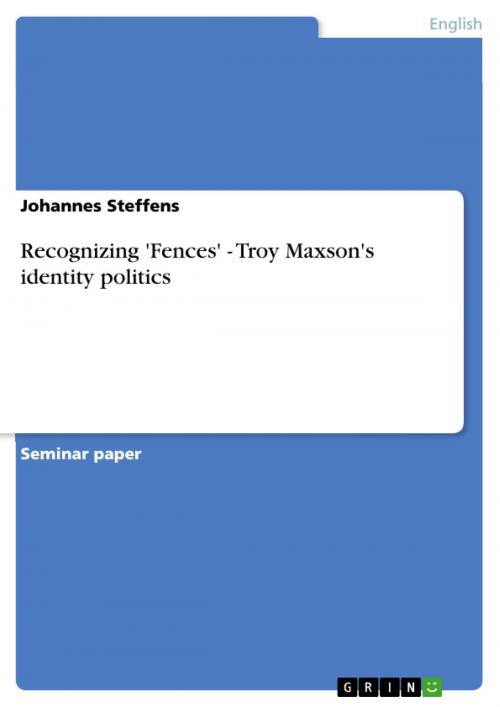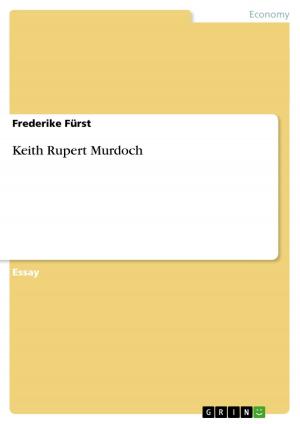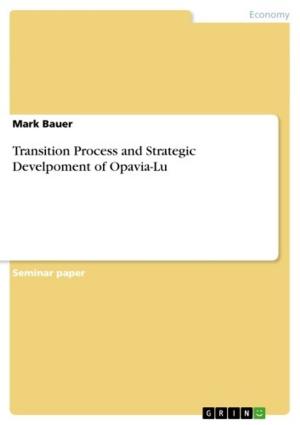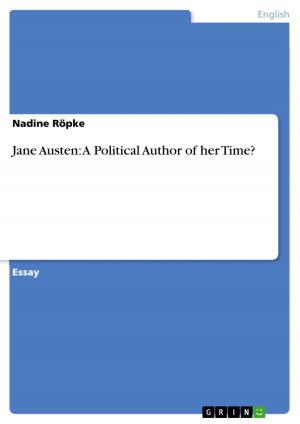Recognizing 'Fences' - Troy Maxson's identity politics
Troy Maxson's identity politics
Nonfiction, Entertainment, Drama, Anthologies| Author: | Johannes Steffens | ISBN: | 9783638567534 |
| Publisher: | GRIN Publishing | Publication: | November 10, 2006 |
| Imprint: | GRIN Publishing | Language: | English |
| Author: | Johannes Steffens |
| ISBN: | 9783638567534 |
| Publisher: | GRIN Publishing |
| Publication: | November 10, 2006 |
| Imprint: | GRIN Publishing |
| Language: | English |
Seminar paper from the year 2006 in the subject American Studies - Literature, grade: 1,0, University of Tubingen, course: PS II Contemporary US Drama: August Wilson, 6 entries in the bibliography, language: English, abstract: August Wilson's 1985 play Fences focuses on black urban life in the late 1950s and deals with intergenerational conflicts, racial issues, distress, and the search for one's identity and position in life. The play's protagonist, Troy Maxson, has been turned into a loud-mouthed, hard-hearted, and occasionally 'crude and almost vulgar' (Wilson 1987, 1) oppressor as a result of the hardships of Afro-American life in the first half of the 20th century and the experiences of his youth; Troy abandoned home at the age of fourteen, after being beaten up by his sadistic father for having watched him rape a thirteen-year-old girl. This paper is intended to examine the identity politics in Fences and will focus on the conflict between Troy and his second son Cory. First, it will highlight the importance of recognition for the development of human beings according to Charles Taylor's theory and then show the negative effects of misrecognition and nonrecognition. Secondly, it will show the different phases of Troy's misrecognition in the play and analyze how this leads to a mutilation of Cory's personality.
Seminar paper from the year 2006 in the subject American Studies - Literature, grade: 1,0, University of Tubingen, course: PS II Contemporary US Drama: August Wilson, 6 entries in the bibliography, language: English, abstract: August Wilson's 1985 play Fences focuses on black urban life in the late 1950s and deals with intergenerational conflicts, racial issues, distress, and the search for one's identity and position in life. The play's protagonist, Troy Maxson, has been turned into a loud-mouthed, hard-hearted, and occasionally 'crude and almost vulgar' (Wilson 1987, 1) oppressor as a result of the hardships of Afro-American life in the first half of the 20th century and the experiences of his youth; Troy abandoned home at the age of fourteen, after being beaten up by his sadistic father for having watched him rape a thirteen-year-old girl. This paper is intended to examine the identity politics in Fences and will focus on the conflict between Troy and his second son Cory. First, it will highlight the importance of recognition for the development of human beings according to Charles Taylor's theory and then show the negative effects of misrecognition and nonrecognition. Secondly, it will show the different phases of Troy's misrecognition in the play and analyze how this leads to a mutilation of Cory's personality.















